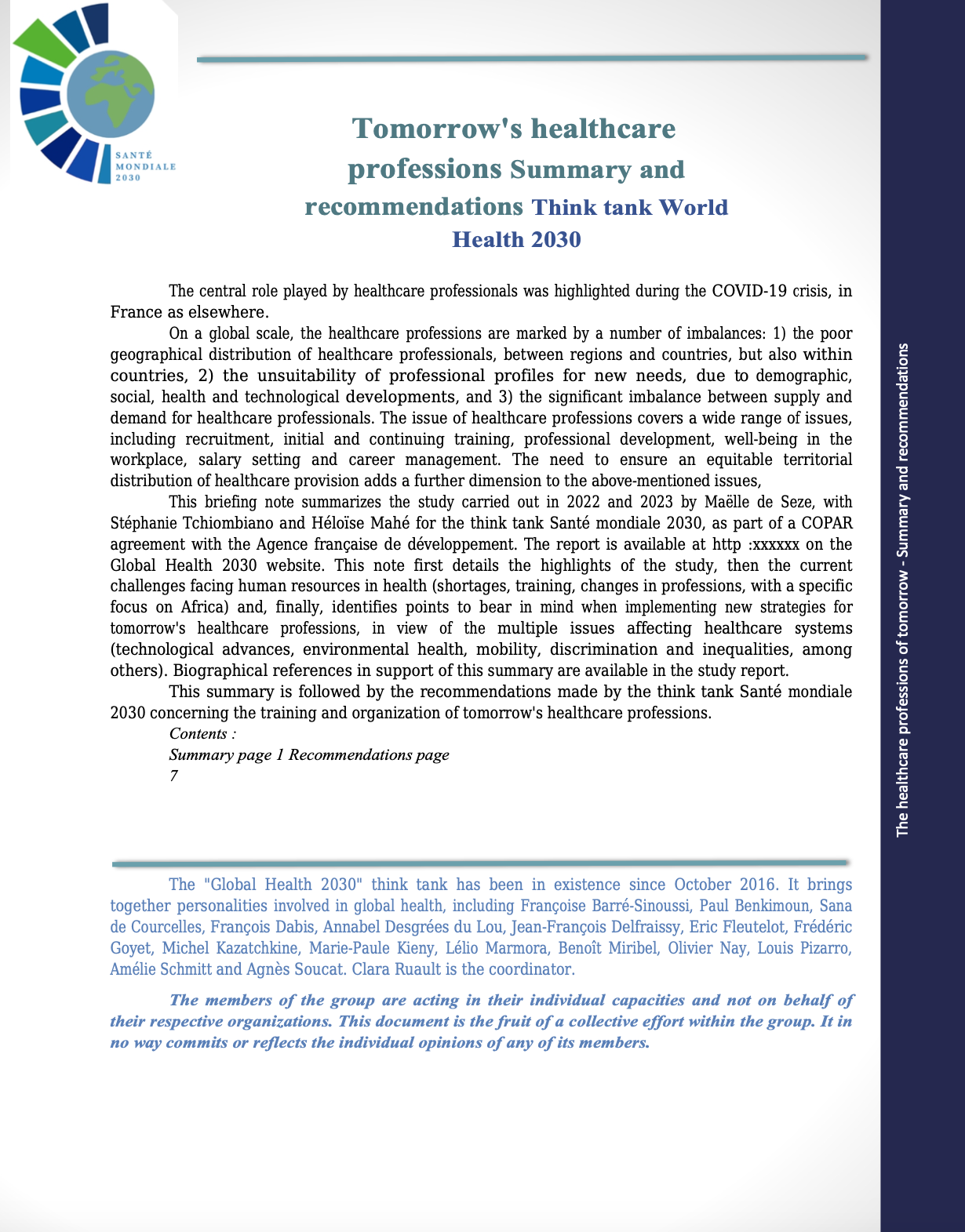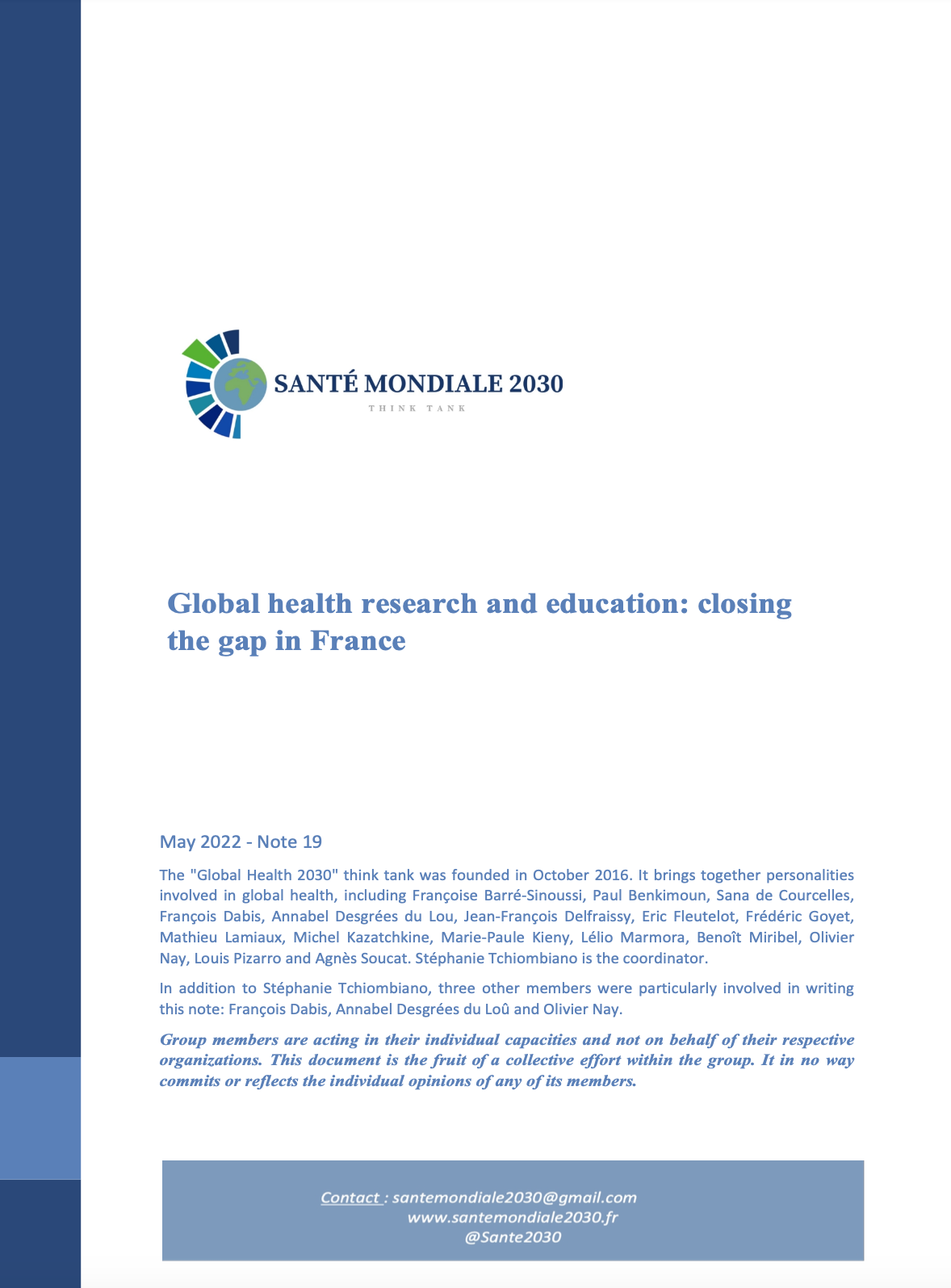‘Santé mondiale 2030’ calls on France to support the Global Fund replenishment
In a rapidly evolving geopolitical landscape, Santé mondiale 2030 calls on France to support the Global Fund to Fight AIDS, Tuberculosis, and Malaria through a renewed partnership around three short- and medium- strategic inflections.
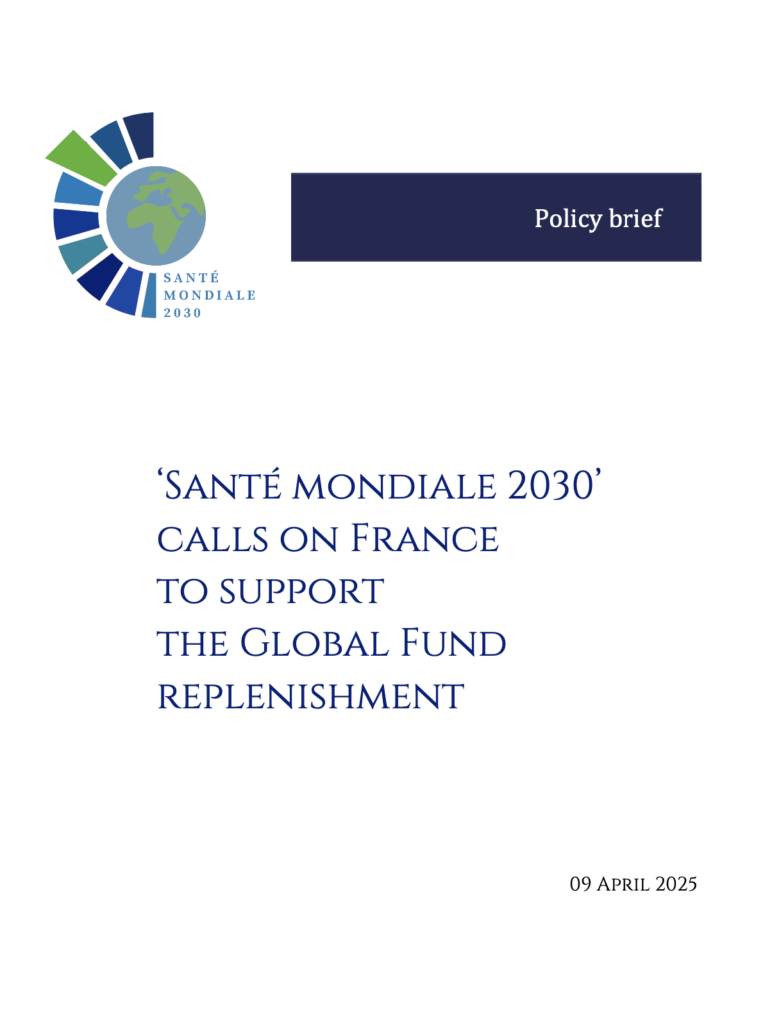
This policy brief follows the publication of the diagnostic report “2000-2020: Two Decades of Changes in Global Health” by the Santé mondiale 2030 think tank in April 2024. It marks a significant paradigm shift for the group, expanding our areas of study in response to the profound changes the world is currently experiencing.
The slowdown in global health progress since the mid-2010s, coupled with the particularly concerning rise of new environmental, climatic, and food-related threats, requires the adoption of new approaches to global health. This new publication aims to propose courses of action for effective joint collaboration on health, environment, climate, and food, with a focus on co-benefits and social participation.
This document is structured into three sections: an overview of the issues at hand, the highlighting of several key principles that can guide action on health determinants and health policies in general, and the formulation of general recommendations and courses of action for each stakeholder.
Our key recommendations for all actors:
- Prioritise the environmental, climatic, and dietary determinants of health, while ensuring that health remains at the center of the political agenda.
- Seize the major co-benefits of action on each of these determinants to prioritise approaches that foster simultaneous progress in health, the environment, the climate, and food systems.
- Reducefragmentationintheprogrammesandgovernanceacrossthese sectors to adopt a unified vision and common practices, thereby minimising “theme competition”.
- Strengthen citizen participation in the formulation of policies related to health and its determinants, ensuring their legitimacy and relevance, and helping to bridge the gap between scientific knowledge and political action.
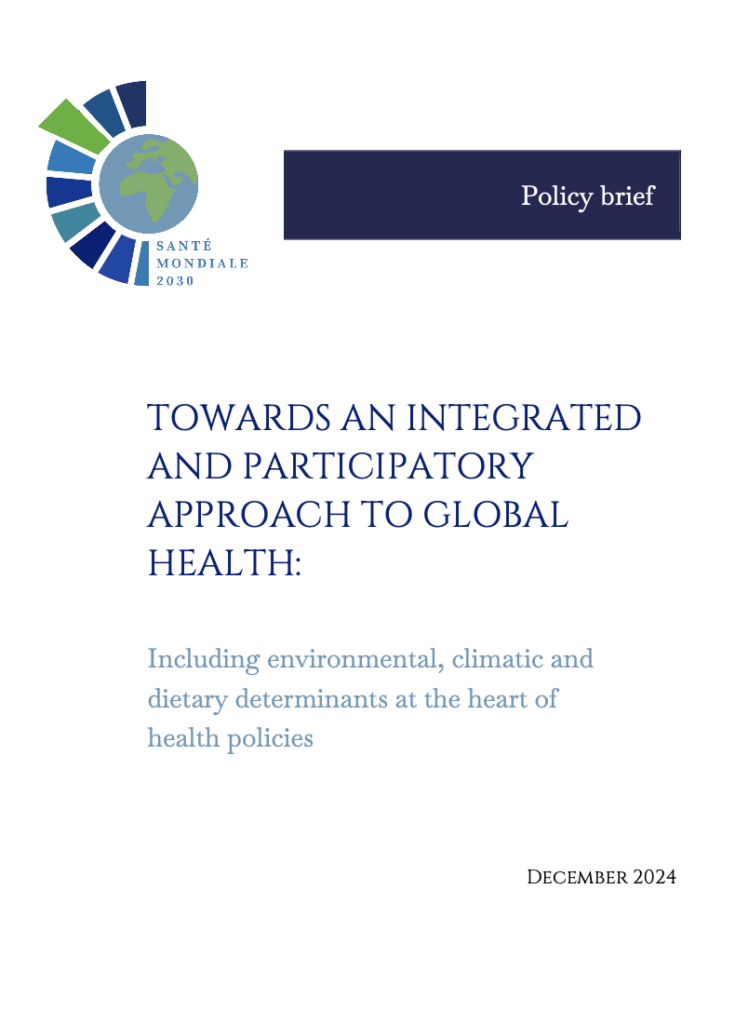
Tomorrow’s healthcare professions – Summary and recommendations (April 2024)
This summary is the result of a study on the healthcare professions of tomorrow, carried out in partnership between World Health 2030 and Agence Française de Développement.
This summary aims to highlight :
- The highlights of the study: rethinking training models, trajectories and careers in the face of the global challenge of the shortage of healthcare workers, highlighting other professions or intermediate occupations (care professions, public health doctors, community health workers). The document presents a number of present and future challenges, with a focus on the evolving health needs in the WHO African region.
- The recommendations of World Health 2030:
1. Do not reduce the health professions to the care professions
2. Invest massively in human resources for health
3. Train more, everywhere and differently
4. Ensure decent working conditions
5. Guarantee fair mobility
Global health research and education: closing the gap in France (May 2022)
Teaching, research and academic expertise dedicated to global health are still very inadequate in France.
1- The French academic system as it is currently organized is hardly conducive to the production of new global health knowledge:
- No university research professors officially affiliated with a “global health” discipline
- Very few research units with a research focus on global health
- A limited, dispersed and low-profile global health training offering
- No mention of “global health” in doctoral schools
- An emerging knowledge ecosystem (associations, funding mechanisms, symposia, specialized journals) that is still struggling to take shape.
2- France has little presence in international academic networks dedicated to these issues. French healthcare expertise is recognized abroad, but has a low profile in the more specific field of global health.
We therefore need to ask ourselves what avenues should be pursued, as quickly as possible, to develop global health as an area of teaching, research and academic expertise in France.
Our recommendations:
- Create a French “ task force ” of global health researchers and teachers involved in a national project to develop this teaching and research field.
- Encourage the creation of master’s degrees dedicated to global health, develop and coordinate a network of degree programs offering courses on these issues, and integrate courses dedicated to global health into the curricula of a large number of training programs, particularly in political, social, environmental and medical sciences.
- Stimulate the creation of “global health” specializations within the various doctoral schools.
- Boost the production of new knowledge in global health by stimulating and funding more interdisciplinary researchon global health priorities.
- Strengthen the training of decision-makers in global health issues.
Build a continuum between researchers, decision-makers and global health operators. Public authorities could, for example, make greater use of French universities and business schools, instead of resorting almost systematically to consulting firms, the IGAS or the Cour des Comptes.
Digital health and global health (November 2021)
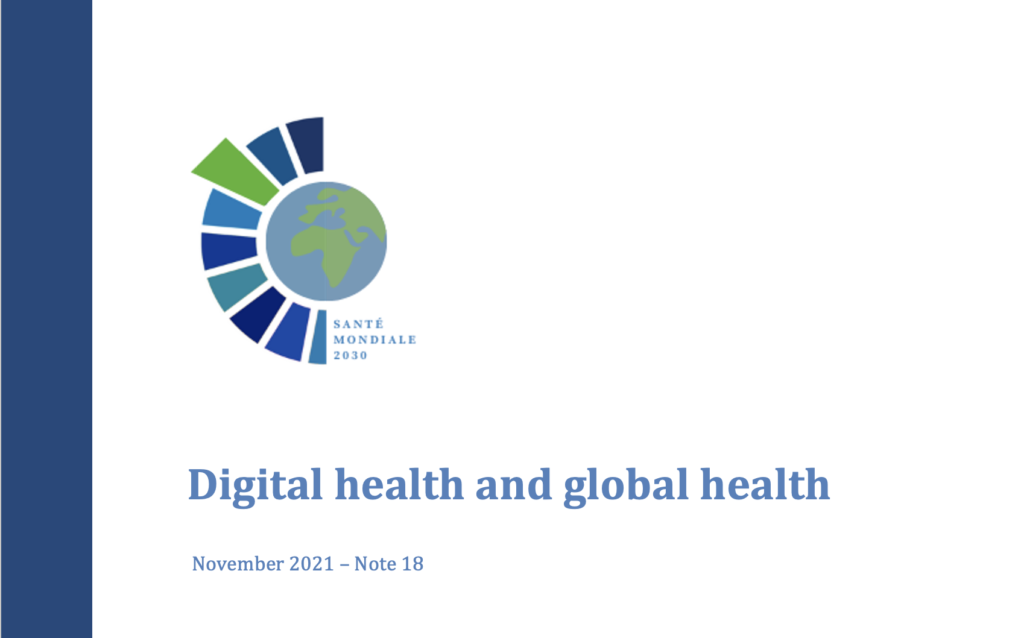
In this note, we recall the conceptual elements of digital health, then present the main opportunities and challenges. With these issues explained, we suggest some proposals to strengthen France’s position in the global governance of digital health. With its major assets, France would gain a foothold by structuring its action and taking its place in international bodies in this strategic and rapidly expanding field.
The French-German axis, a driving force for global health ? (November 2020)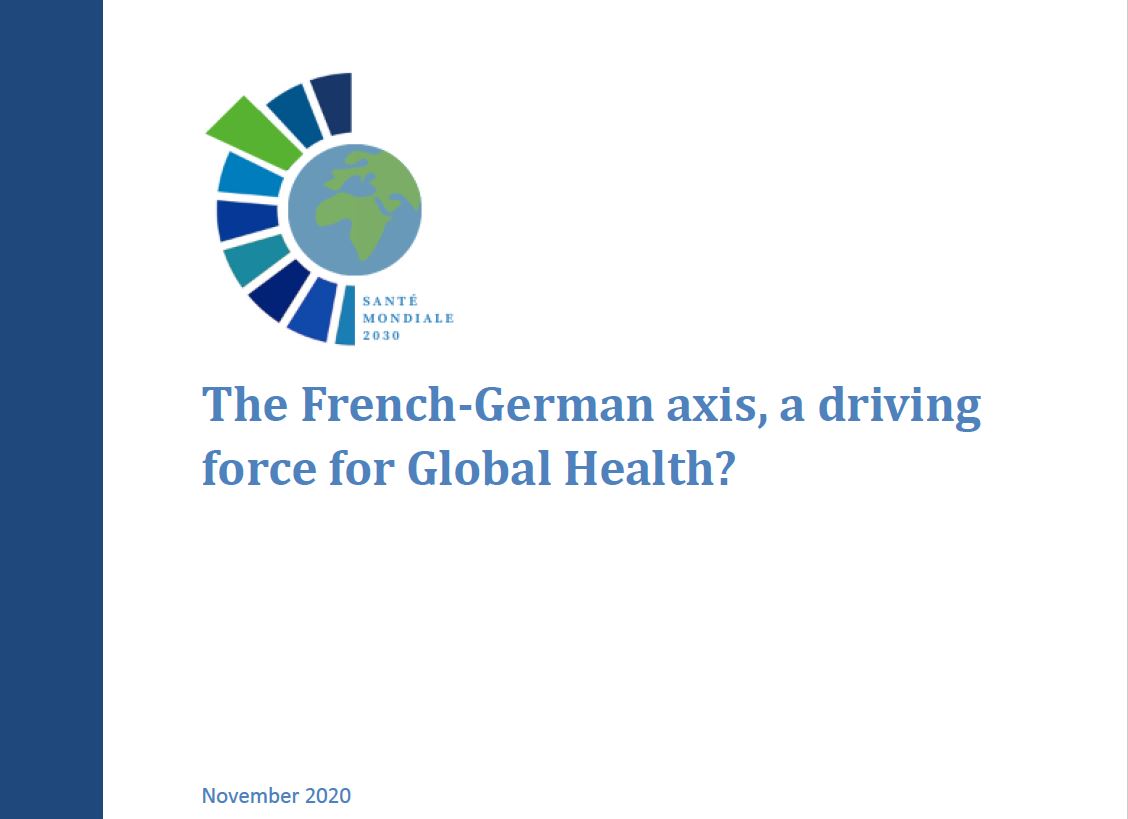
This note presents the interests of strengthening links between France and Germany on global health at a time when the Covid-19 crisis illustrates the need to think about health issues across borders.
Structuring the academic field of global health in France (February 2020)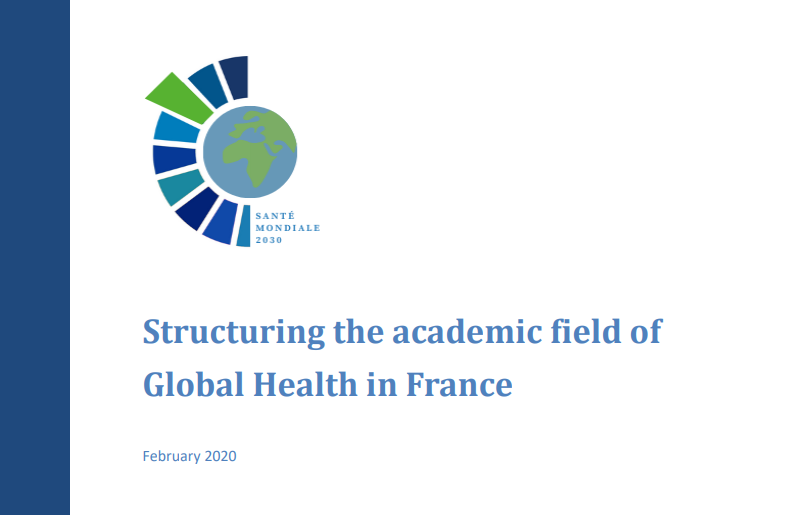
Why is it that there is currently no teaching and research program dedicated to global health in France? This note takes stock of the issues at stake and gives some pointers on how to move forward on this important project.
UNAIDS: What stakes, what future? (October 2019)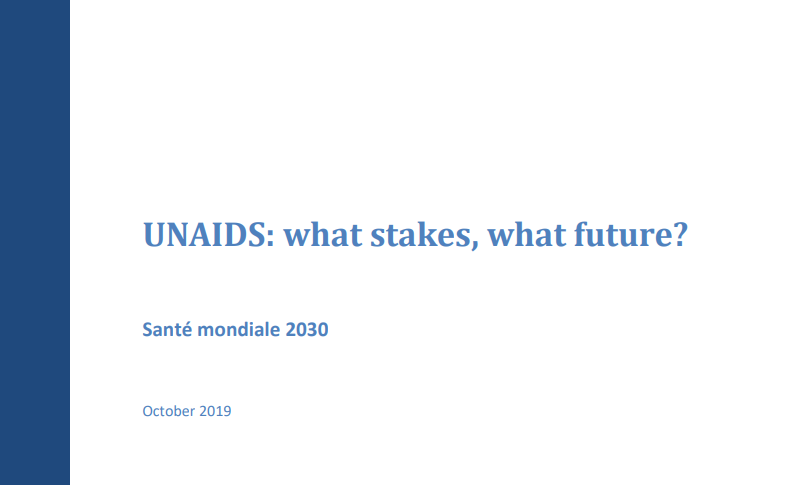
Winnie Byanyima took office as UNAIDS Executive Director on November 1st, 2019. In this note, the Global Health 2030 group shares a collective reflection on the uniqueness of the programme, its current mandate and the key challenges (health, financial, organizational) that the new Director will face.
The existence of a European health commissioner is essential for the health of Europeans (July 2019)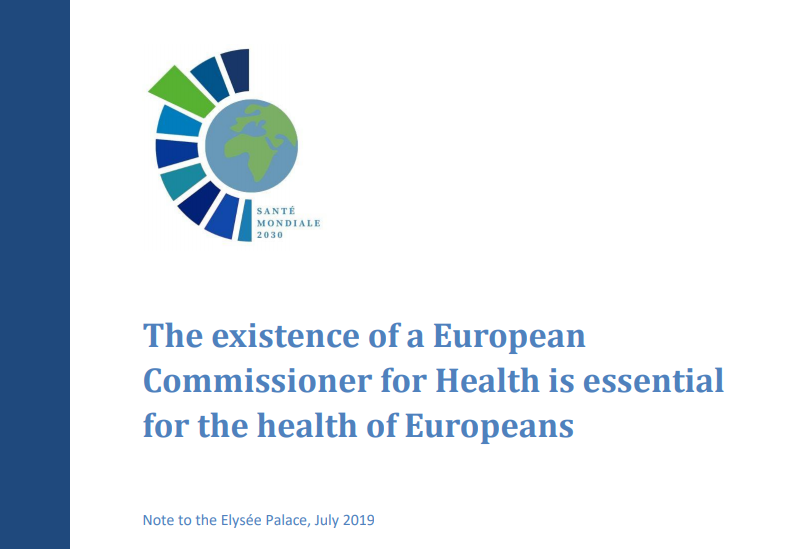
The European Union has a key role to play in health, in strengthening the efforts of EU countries, proposing legislation, facilitating the exchange of good practices, pursuing common health promotion policies and providing a stronger European voice on the international scene.
The French institutional framework for global health: reflections and proposals (June 2019)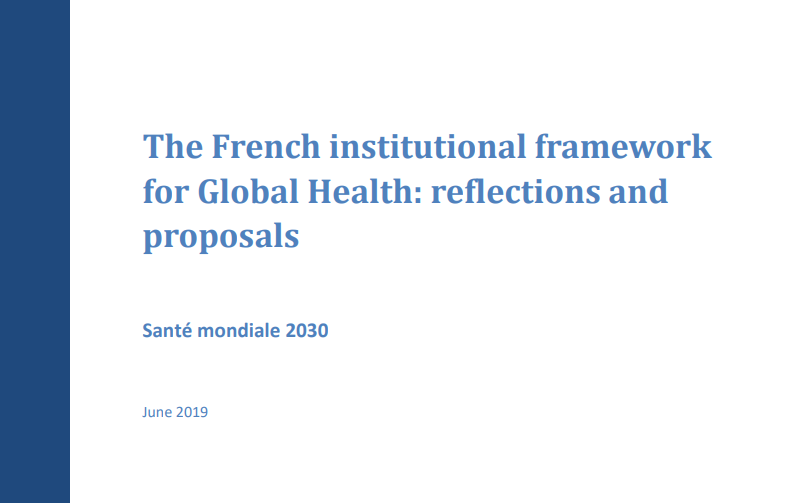
In a context marked by the advent of SDGs, the expected increase in French funding dedicated to global health, and the reorganization of public action, it is important to anticipate changes and, perhaps, to rethink our institutional system in global health so that it becomes more coherent, clearer and more effective.
Contribution to the next Global Fund Replenishment Conference (December 2018)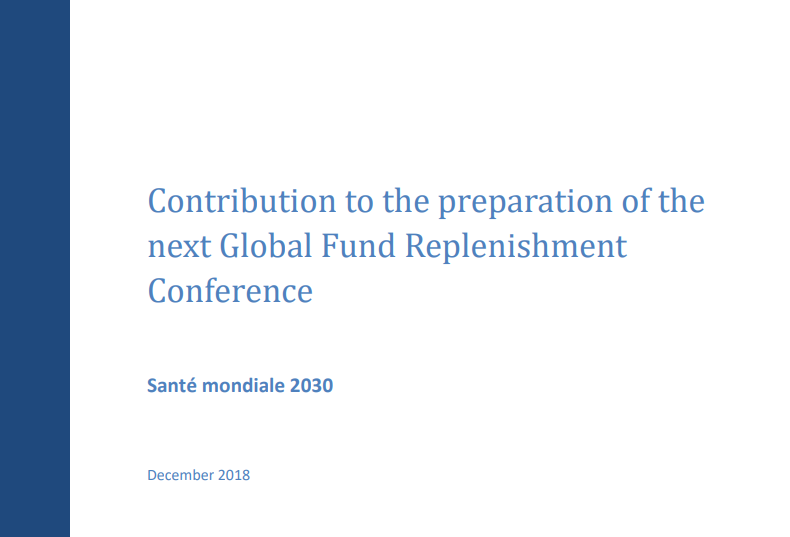
The Replenishment Conference should not only be an opportunity to recall that France is the second historical contributor to the Global Fund, it can and must also be a time for more general reflection on the future of the Global Fund.
Breathing new life into the fight against tuberculosis (July 2018)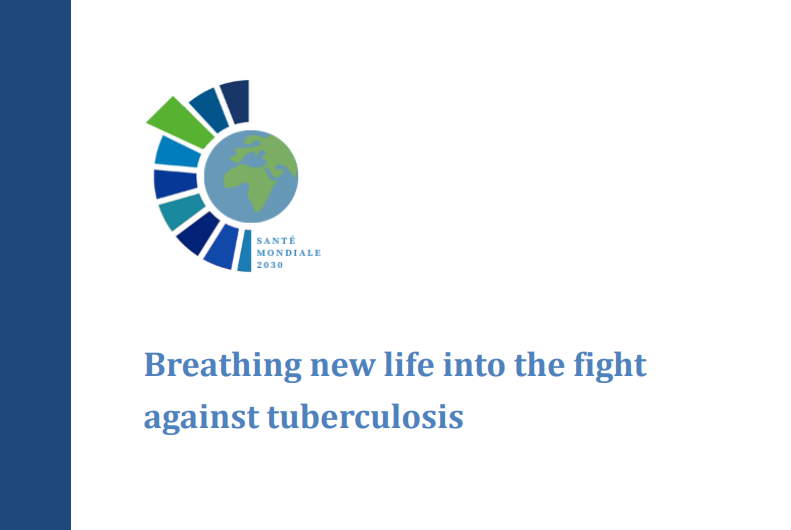
The note makes recommendations for France to politically reinvest in multilateral global health spaces, to promote the fight against tuberculosis as a symbol and indicator of progress in universal health coverage and to put research at the heart of the international agenda.
Health is a priority for the Sahel (November 2017)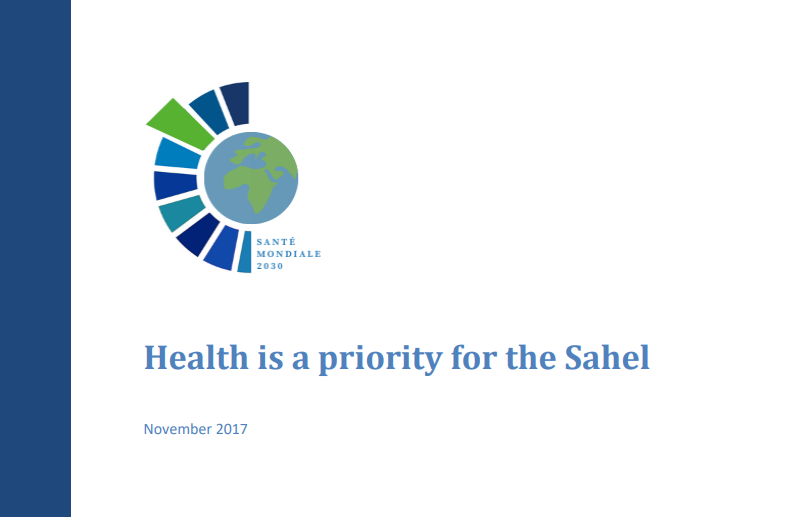
Health issues have particularly important implications for the countries of the Sahel, a vast region that is among the poorest in the world. While significant progress has been made in recent years on infectious diseases, many challenges remain: inequalities in access to care, structural food crises, administrative and human resource deficits, and a sense of abandonment on the part of local populations.
Our vision of global health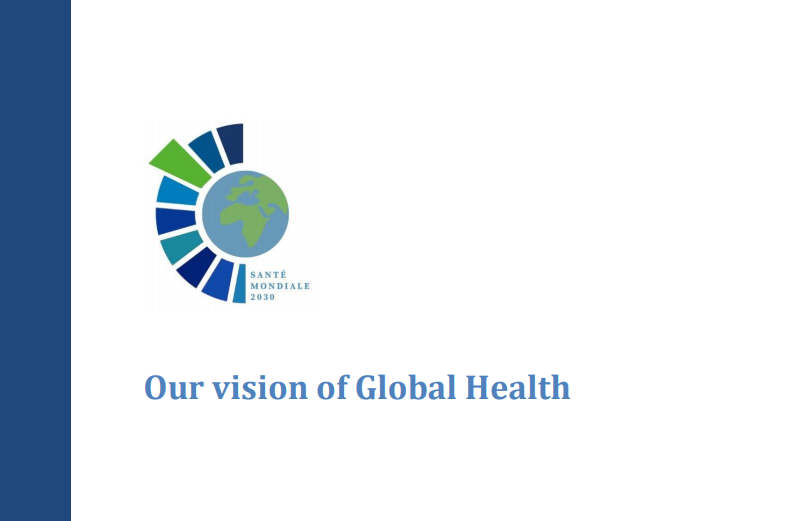
Read our vision of global health in this synthesis paper.
White Paper on Global Health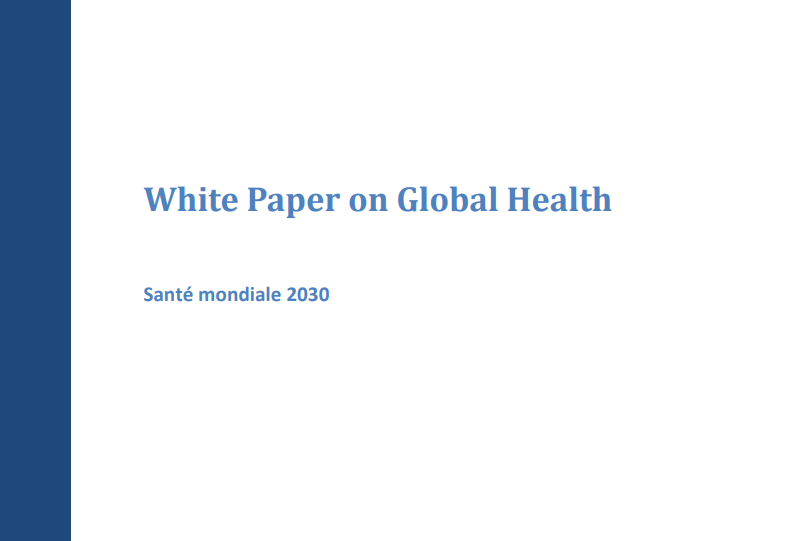
Global Health 2030 – a think tank and analysis group on major global health issues – aims to formulate proposals to help French policy makers develop a coherent, more effective strategy that sets priorities in line with the resources available to France.

